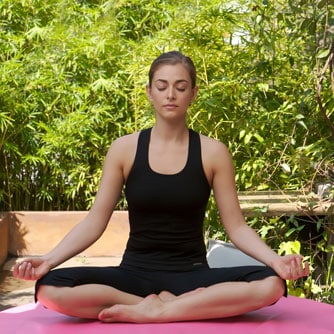Previously, researches from the University of California/Los Angeles (UCLA; California, USA) Semel Institute for Neuroscience and Human Behavior reported that people who practiced Kirtan Kriya Meditation (KKM), a type of yoga, for just 12 minutes daily for eight weeks were able to reduce their biological mechanisms responsible for an increase in the immune system’s inflammation response. In that caring for a frail family member affected by a chronic, debilitating medical condition can be a significant life stressor, resulting in higher levels of stress and depression and lower levels of life satisfaction, and vigor. Caregivers show higher levels of the biological markers of inflammation, putting them at increased risk of stress-related disease and general health decline. The research team randomized subjects into two groups. The meditation group was taught the 12-minute yogic practice that included Kirtan Kriya, which was performed every day at the same time for eight weeks. The other group was asked to relax in a quiet place with their eyes closed while listening to instrumental music on a relaxation CD, also for 12 minutes daily for eight weeks. Blood samples were taken at the beginning of the study and again at the end of the eight weeks. Inflammatory markers were elevated in the group of caregivers that engaged in relaxation to music. The study authors observe that: “A brief daily yogic meditation intervention may reverse the pattern of increased NF-[kappa]B-related transcription of pro-inflammatory cytokines and decreased [Interferon Response Factor]1-related transcription of innate antiviral response genes previously observed in healthy individuals confronting a significant life stressor.”
Yoga Benefits Caregivers
David S. Black, Steve W. Cole, Michael R. Irwin, Elizabeth Breen, Natalie M. St. Cyr, Nora Nazarian, Dharma S. Khalsa, Helen Lavretsky. “Yogic meditation reverses NF-κB and IRF-related transcriptome dynamics in leukocytes of family dementia caregivers in a randomized controlled trial.” Psychoneuroendocrinology, 14 July 2012.
RELATED ARTICLES




